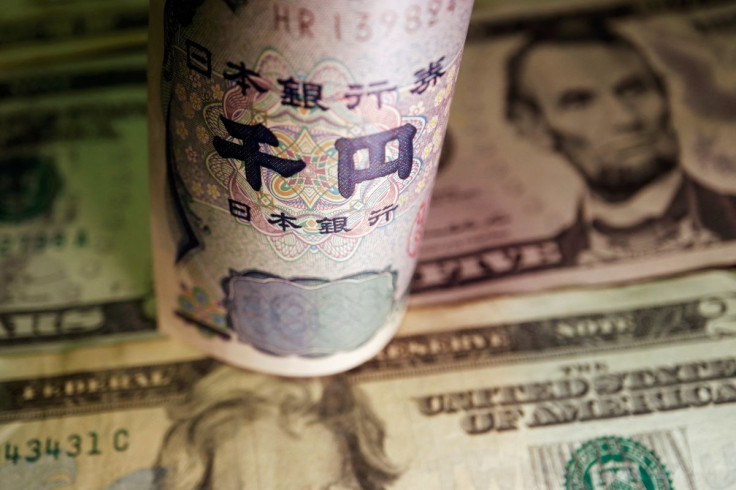Yen To Remain Weaker Than Key 130-per-dollar Level At Year-end - Reuters Poll

The Japanese yen will likely remain weaker than the key psychological level of 130 per dollar over the next six months as a gap between Japanese and U.S. benchmark yields weighs on the currency, a Reuters poll showed.
This year the yen has slumped against the greenback and other major peers as the Bank of Japan (BOJ) resolutely stuck to its ultra-dovish monetary policy, in contrast to a growing number of increasingly hawkish central banks overseas.
Weakness in the currency comes mainly from widening interest rate differentials between Japan and elsewhere.
In the July 1-6 poll, the median forecast was for Japan's currency to strengthen to 131 per dollar in six months' time, compared with 126.84 in last month's forecast, meaning it would stay weaker than the 130-yen-per-dollar level.
The Japanese currency hit its weakest against the dollar since 1998 at 137 last week.
Seven of 61 respondents projected the yen to be at a weaker level than that six months from now, including four forecasting it to be at 140.
Despite the yen's rapid decline this year - it has lost about 15% against the greenback - Japan was unlikely to intervene in the FX market to stop it from sliding, 45% of 22 poll respondents said.
"The BOJ will probably be forced to abandon the yield curve control policy in the coming months if JPY depreciates further. However, direct intervention looks unlikely," said Roberto Cobo Garcia, head of FX strategy at BBVA.
Some market players have speculated the country could conduct yen-buying intervention to arrest sharp falls in the currency after authorities stepped up their warnings about its strong declines.
While the BOJ has firmly rejected the idea of adjusting its policy in the face of the yen's falls, some strategists said it would be the central bank, not the government, that would move first if policymakers were to act in response to its declines.
"Japanese officials have been expressing concerns over yen weakness, and the BOJ highlighted that a rapid depreciation of the yen has a negative impact on the economy," said Khoon Goh, head of Asia research at ANZ Bank.
"At this stage, JPY weakness is not enough for the BOJ to change its monetary policy stance, but if there is a push towards 140-150, the situation could change."
Ten of 22 poll respondents said Japan would not intervene.
That compared with six respondents who predicted intervention at the 140 yen per dollar level, and four who chose 145 as the likely trigger level. One selected 150 as the dollar/yen rate at which Japan would intervene, while another said 155 or weaker.
The last time the authorities intervened to prop up the yen was in 1998.
(For other stories from the July Reuters foreign exchange poll:)
© Copyright Thomson Reuters {{Year}}. All rights reserved.





















